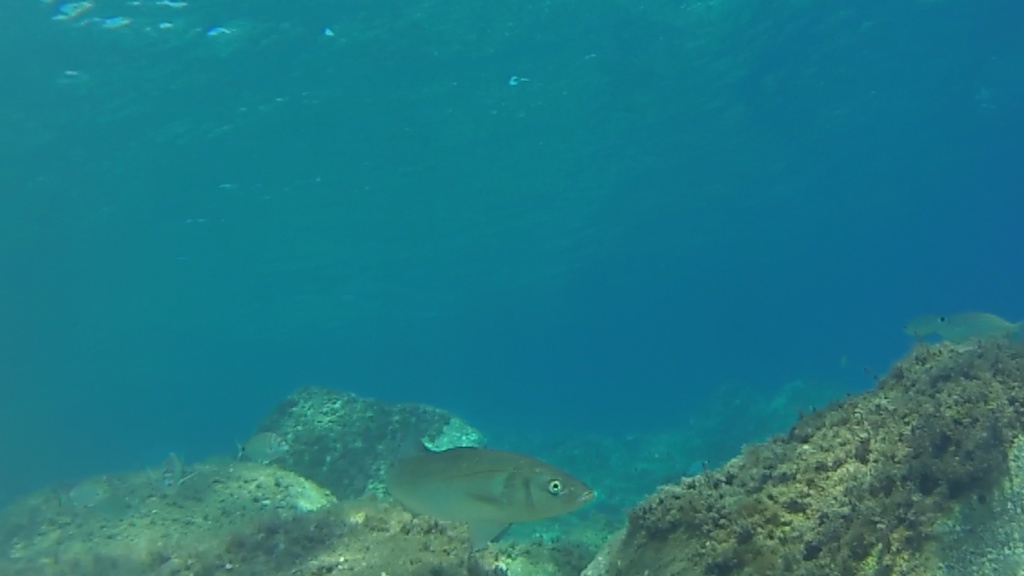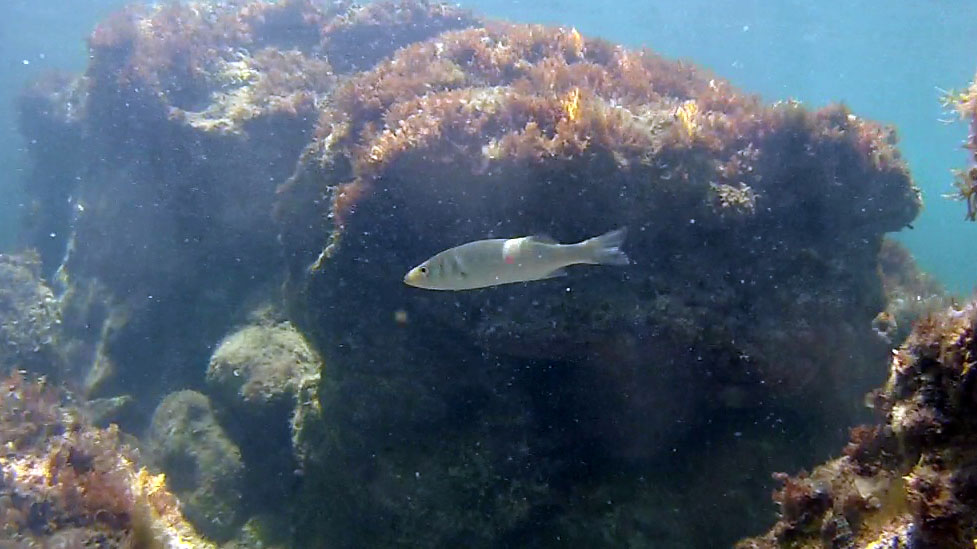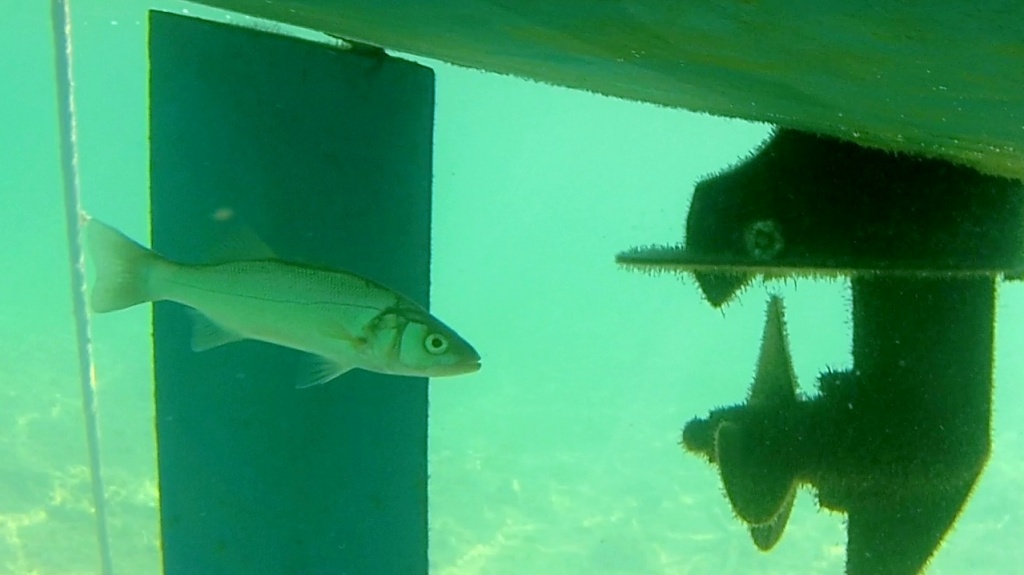Branzino - Dicentrarchus labrax
Dicentrarchus labrax, commonly known as European bass or Sea bass is a marine and brackish water fish of the Moronidae family. Dicentrarchus labrax spigola branzino intotheblue.it
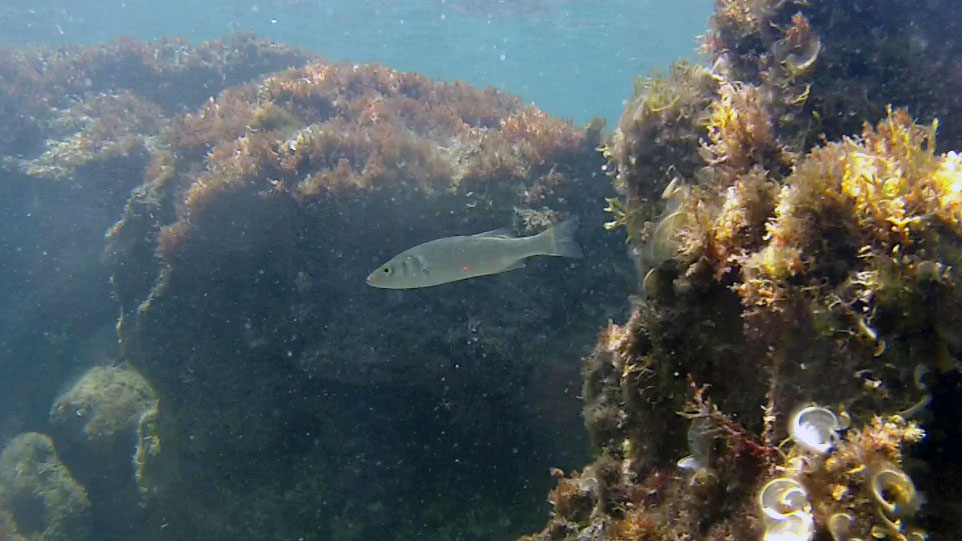
The European bass (Dicentrarchus labrax) is a primarily ocean-going fish native to the waters off Europe‘s western and southern and Africa‘s northern coasts, though it can also be found in shallow coastal waters and river mouths during the summer months. It is one of only six species in its family, Moronidae, collectively called the temperate basses.
It is both fished and raised commercially, and is considered to be the most important fish currently cultured in the Mediterranean. In Ireland and the United Kingdom, the popular restaurant fish sold and consumed as sea bass is exclusively the European bass. In North America it is widely known by its Italian name branzino.
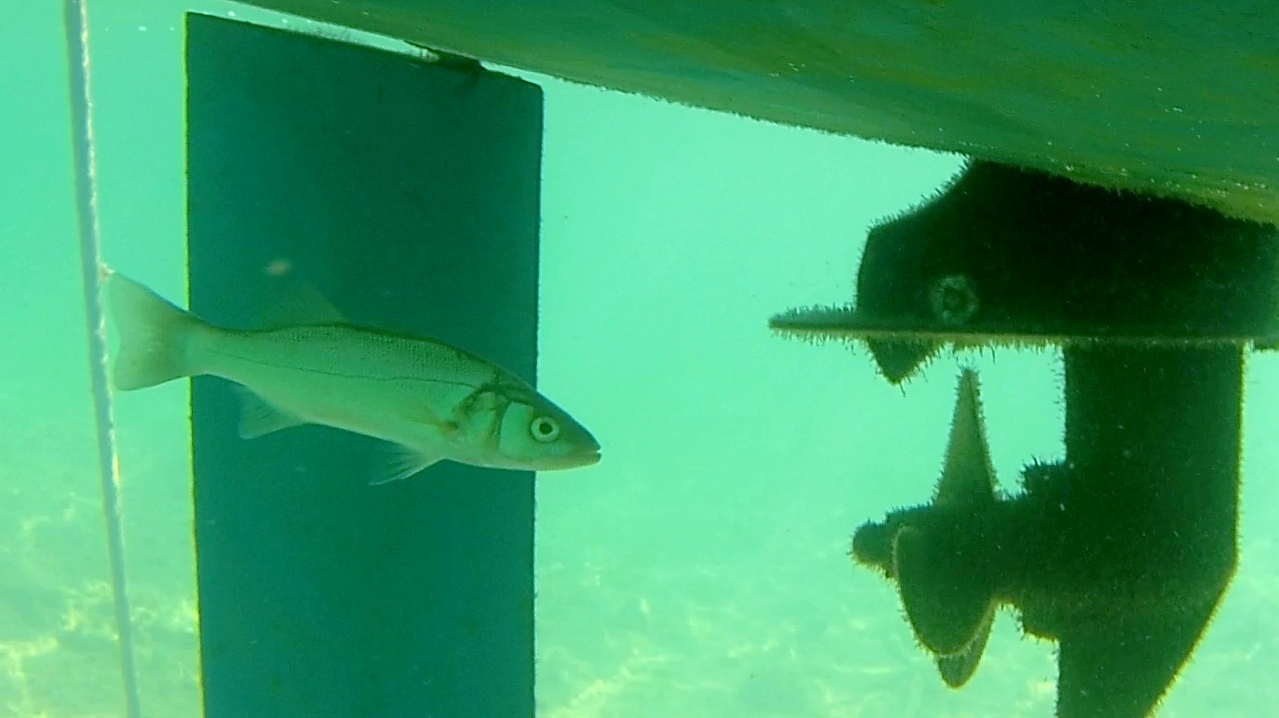
Dicentrarchus labrax spigola branzino intotheblue.it
European bass can reach sizes of up to 1 m (3.3 ft) in length and 12 kg (26 lb) in weight, though the most common size is only about half of that at 0.5 m (1.6 ft). Individuals are silvery grey in color and sometimes a dark-bluish color on the back.
Juveniles form schools and feed on invertebrates, while adults are less social and prefer to consume other fish. They are generally found in the littoral zone near the banks of rivers, lagoons, and estuaries during the summer, and migrate offshore during the winter. Despite being a sought-after gamefish, it is listed as Least Concern by the International Union for the Conservation of Nature because it is widespread and there are no known major threats.
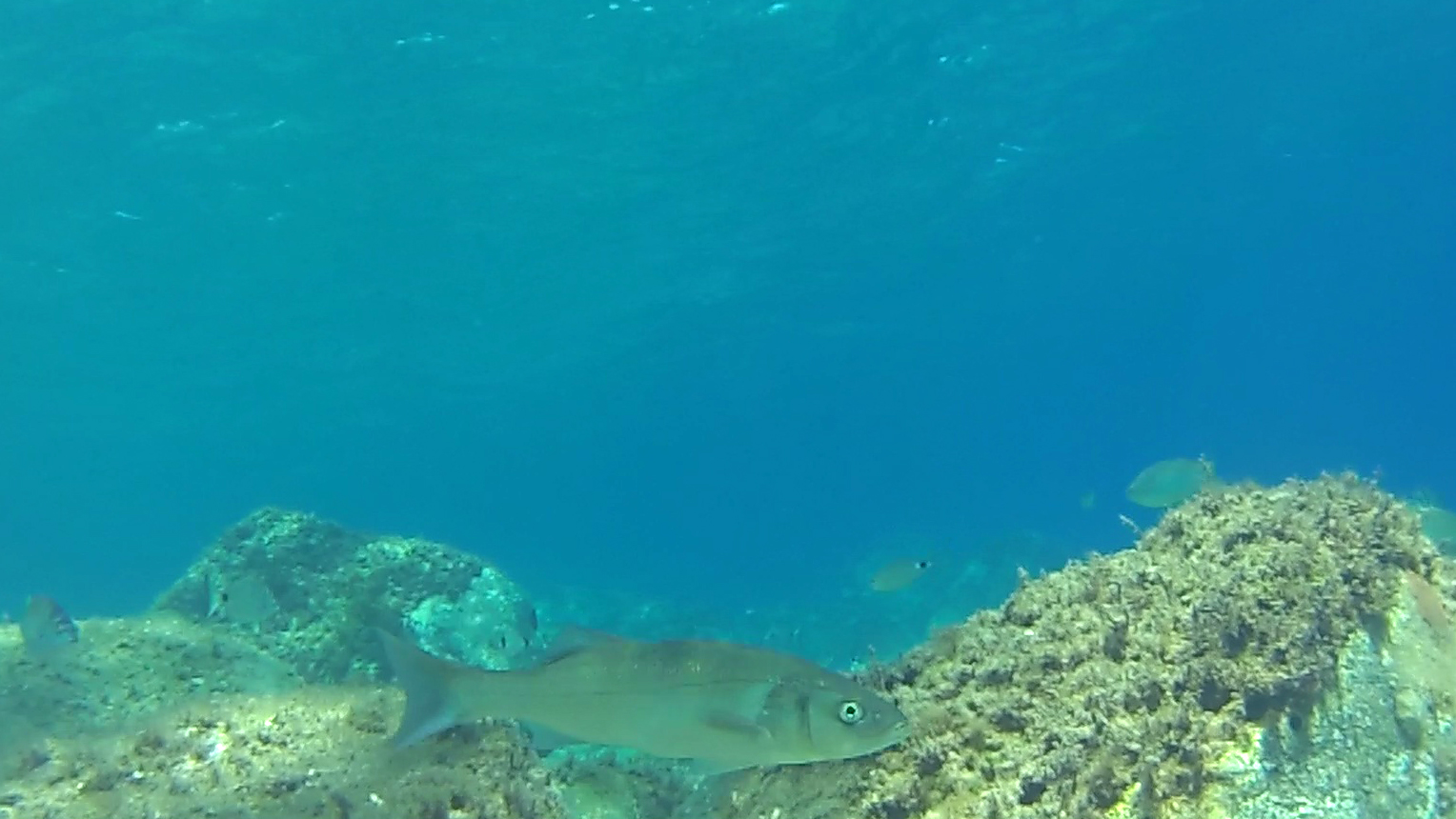
Distribution and habitat
Its habitats include estuaries, lagoons, coastal waters, and rivers. It is found in the waters in and around Europe, including the eastern Atlantic Ocean(from Norway to Senegal), the Mediterranean Sea, and the Black Sea.It is a seasonally migratory species, moving further inshore and north in summer.
Diet and behaviour
It is mostly a night hunter, feeding on small fish, polychaetes, cephalopods, and crustaceans. They spawn from March to June, mostly in inshore waters. As fry they are pelagic, but as they develop they move into estuaries, where they stay for a year or two.
https://it.wikipedia.org/wiki/Dicentrarchus_labrax
https://en.wikipedia.org/wiki/European_bass


